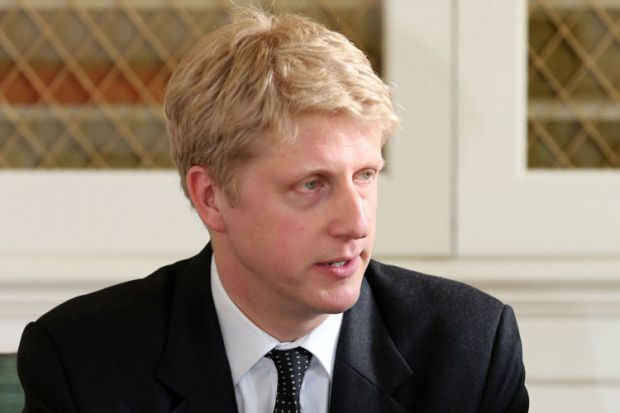The teaching excellence framework will include metrics on widening participation and also help to drive “rapid market share shifts between universities”, according to Jo Johnson.
The universities and science minister said that there would be a Green Paper on planned changes including the TEF “over the next few weeks”, during a speech at a fringe event at the Conservative Party conference in Manchester this morning.
He told the event, titled “Does Britain only love some universities?” and hosted by Million+, the National Union of Students and ConservativeHome, that “we want to see more diversity, more new providers, more innovation, more new paths into higher education such as two-year degrees and degree apprenticeships”.
There was “still too much variability in the student experience within and between universities”, he added.
The Green Paper will invite “responses from the sector and from employers into how we can best drive up teaching quality in parts of the sector showing too much variability and patchiness”, Mr Johnson continued.
He said that the government is “consulting with the sector to make sure we get the core metrics right. Widening participation and access will be intimately linked to the TEF. One of the core metrics we envisage using in the TEF will be the progress and the value add [for] students from disadvantaged backgrounds, measuring it for example in terms of their retention and completion rates. And their [universities’] success in moving students on to either further study or graduate work.”
Mr Johnson said that government changes would also bring in “high quality new entrants regulated on a risk assessed basis”.
He added that the system should “not only have the capacity for more rapid market entry, but we [should] have the capacity for more rapid market share shifts between universities than we have hitherto seen in the sector”.
He continued: “In such an environment it’s important we consult on provision to ensure that when market share shifts and when institutions decide they are not competitive at offering a certain discipline, courses in a certain subject area, or if they decide they want to withdraw providing education services altogether, we need to ensure there is proper provision for students so they can be taught out at other institutions if they are midway through their courses.
“Or that they could be properly protected as you would expect purchasers of one-off high-value goods to be in other markets, in the event that a provider decides to withdraw from the market altogether.”
Mr Johnson said that he wanted a system where “market share can shift towards where teaching quality really resides. Our teaching excellence framework will be an important signal to students of where quality resides, discipline by discipline, institution by institution.”
On research, Mr Johnson said that it was “vital that we support our research base and we have every intention of doing so as a government”.
In remarks coming ahead of the spending review, he said that there is strong evidence that public investment in research “crowds in” private spending, adding that he “fully understand[s] the important role the government plays in that respect”.
Register to continue
Why register?
- Registration is free and only takes a moment
- Once registered, you can read 3 articles a month
- Sign up for our newsletter
Subscribe
Or subscribe for unlimited access to:
- Unlimited access to news, views, insights & reviews
- Digital editions
- Digital access to THE’s university and college rankings analysis
Already registered or a current subscriber? Login







